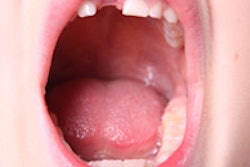
The American Dental Association (ADA) and the Pew Children's Dental Campaign have expressed disappointment over the recent U.S. Supreme Court ruling that dentists and other private healthcare providers cannot sue to force the states to raise their Medicaid reimbursement rates.
The ADA said the decision is another hurdle for Medicaid reform, while Pew noted that low reimbursements keep many dentists from treating Medicaid patients.
The ADA said it was disappointed by the high court's decision in the Armstrong v. Exceptional Child Center case, which found that healthcare providers do not have standing to bring a lawsuit challenging inadequate Medicaid reimbursement rates based on a state's failure to meet Medicaid's equal access requirement.
"This ruling creates yet another hurdle for advocates of Medicaid reform," ADA President Maxine Feinberg, DDS, told DrBicuspid.com. "Dentists and physicians continue to vigorously advocate for improvements to state Medicaid programs."
Dr. Feinberg noted the low allotment for dental care in state Medicaid budgets, adding that the decision prevents healthcare providers from forcing states to comply with federal Medicaid law in the states, which requires access to quality care and medical services.
"Oral health is vital to overall health, especially for chronic diseases such as diabetes, and yet most states allocate just 2% or less of their Medicaid budgets for dental services," she said. "This Supreme Court decision results in one less recourse for healthcare providers seeking to hold states accountable to federal mandates."
Jane Koppelman, research director for the Pew Children's Dental Campaign/Pew Charitable Trusts, called the decision "worrisome."
"We know that low reimbursement rates keep many dentists from treating Medicaid patients," she told DrBicuspid.com.
However, she noted that increasing Medicaid levels is only one part of solving the access-to-care issue.
"But raising or enforcing existing rates is not enough to solve the access problem," Koppelman said. "We also need to figure out how to get providers into the thousands of communities that already face dentist shortages and how to get care to those people who find it difficult to travel to dentists' offices."
ADA files brief
The case began in Idaho when companies that provide home care for intellectually disabled patients sued the state over its low Medicaid reimbursement rates. They asked the court to force the state to increase reimbursement rates.
The stated intent of the Medicaid Act is to provide access to quality care and medical services, "at least to the extent that such care and services are available to the general public in the [relevant] geographic area," according to the ADA's legal analysis.
The ADA, American Medical Association, and other healthcare associations filed amicus briefs in support of the healthcare providers, arguing that the supremacy clause of the U.S. Constitution -- the clause making federal law the supreme law of the land -- created a private right of action that permitted the plaintiffs to seek the requested relief.
Medicaid beneficiaries and providers have long relied on private lawsuits to remedy states' noncompliance with the equal-access mandate, and reimbursement rates are important to provider participation, the associations said. Private litigation in Connecticut and Oklahoma led to increased dental reimbursement rates and increased access to dental care for children, their brief stated.
The high court ruled, however, that the plaintiffs did not have standing to pursue their action and held that the only "corrective" remedy provided under the Medicaid Act was the power of the secretary of the U.S. Department of Health and Human Services to withhold federal Medicaid money from Idaho.
The justices' broad language on the private remedy issue raises the question about whether Medicaid patients will still have the right to challenge state underfunding of Medicaid programs, the ADA's legal analyst said.



















